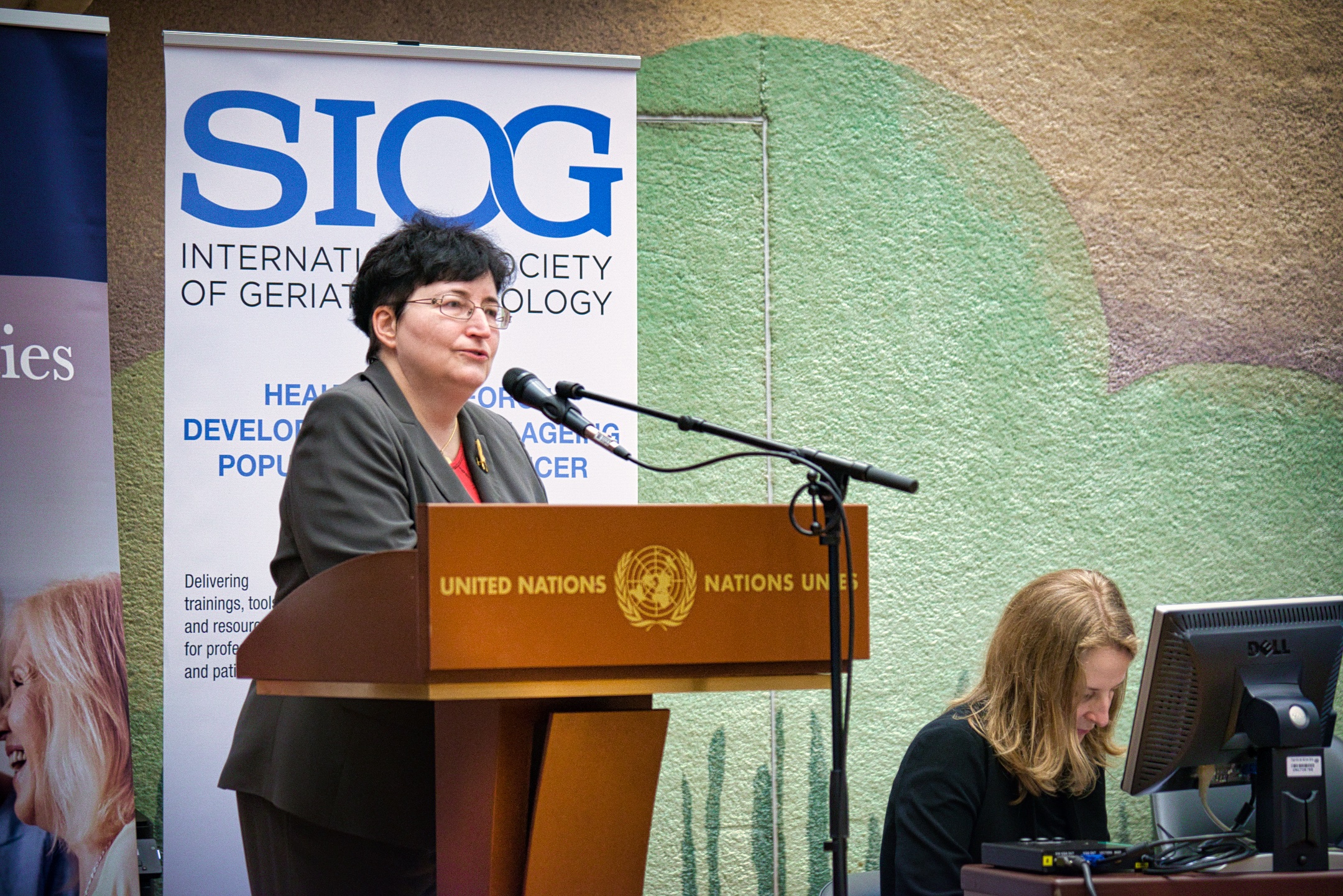Progress report for
Global collaborations for impactful advances in geriatric oncology

Achievement at a glance
Health professionals, researchers, NGOs, governments, and patients are coming together toward a common goal of improving cancer care in the older population. SIOG, has been at the forefront of addressing the issue since 2000 through education, clinical practice, research, and partnerships. SIOG has shown leadership in the field and served as a platform for partners from over 80 countries to improve older adult cancer care.In 2019, SIOG gathered global experts for a policy meeting at the United Nations in Geneva and outlined 12 priorities for advancing cancer care in older adults. Since then, the focus has been establishing a road map that transforms these commitments into practical action. Other meetings include:
1. September 30, 2020 – Virtual SIOG 2020 Public Policy Meeting : Supporting Global Policy for Cancer in the Ageing “Impact of COVID-19 on older people with cancer”: Panel dicussions for capacity building (skills, education, digital technology) at country level in collaboration with WHO and NGOs during COVID-19 affecting older people with cancer.
2. June 24, 2021 – Virtual SIOG 2021 Public Policy Meeting : Supporting Global Policy for Cancer in the Ageing “ The impact of COVID-19 on ageing cancer patients”: Panel dicussion with participation of WHO HQ, WHO AFRO, WHO PAHO, MoH Philippines, WHO country office for India, School of Medicine – Mashhad University of Medical Sciences Iran, Medical Oncology at National Cancer Institute of Cairo University, ASCO, ECPC, Moffitt Cancer Center USA.
3. October 28, 2022 – United Nations, Geneva – Switzerland. SIOG 2022 Public Policy meeting: Cancer in the Ageing Population. “Improving relevance of clinical trials to older adults with cancer” : On 28 October 2022, SIOG convened a multi-stakeholder hearing at the United Nations in Geneva, to discuss SIOG Priority 7 “improving relevance of clinical trials to older adults with cancer”.
Publication:
https://www.thelancet.com/journals/lanonc/article/PIIS1470-2045(20)30473-3/fulltext
Challenges faced in implementation
1. Cancer rates continue to rise globally with a disproportionate impact on the older population. Individuals aged 70 and above are particularly affected and account for the largest proportion of cancer-related deaths globally. Despite this, the care they receive falls short when compared to other age groups. The misconception that older adults have a lower treatment tolerance contributes to this, leading to under-representation in trial registration (Reference: https://www.devex.com/news/opinion-we-need-to-continue-improving-cancer-care-for-older-adults-104473)2. Lack of funding support to launch educational programmes and trainings for healthcare professionals treating older cancer patients.
Next Steps
Dr. Najia MusolinoBeneficiaries
Healthcare professionals treating older cancer patients, pharmaceutical industries as well as stakeholders from ministries of health and policy makers involved in National Cancer Control Plans.
